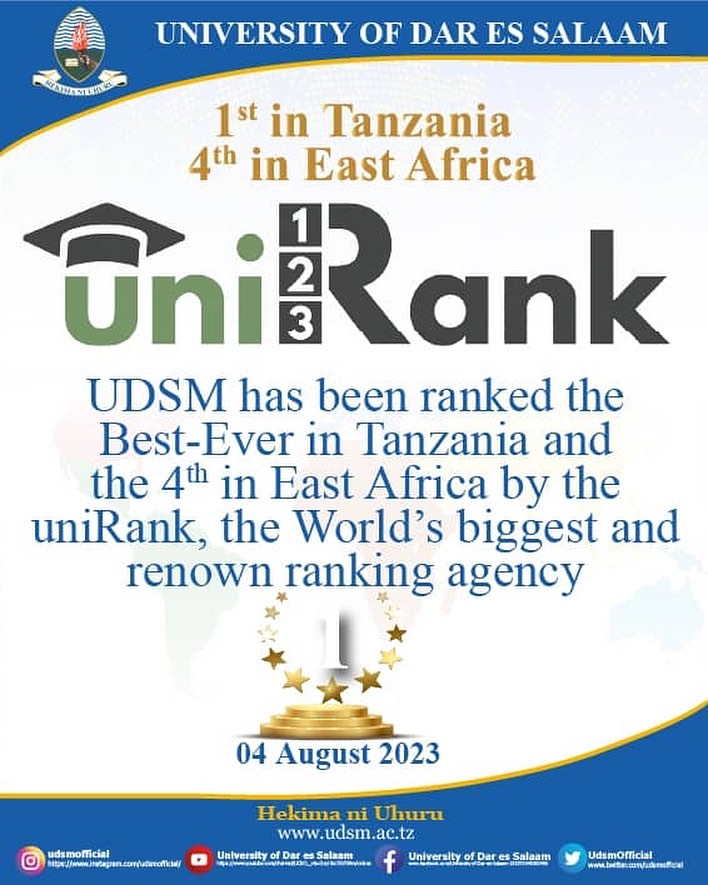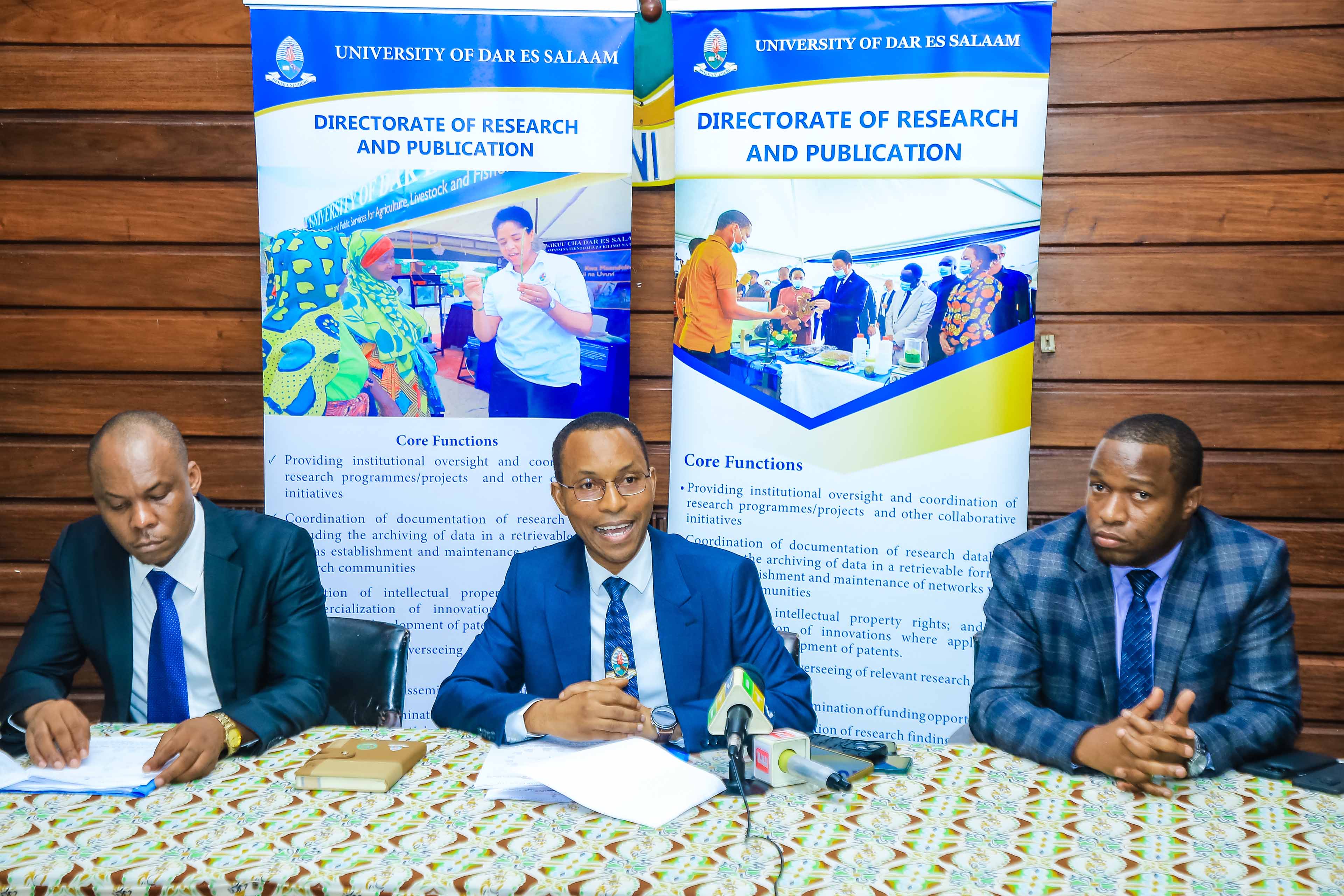Deputy Vice Chancellor-Research extols global university rankings
By Special Correspondent, CMU
The Acting Deputy Vice Chancellor-Research of the University of Dar es Salaam, Prof. Nelson Boniface, has underlined the significance of global university ranking and its usefulness in improving academic and research performance.
Speaking to journalists recently, Prof. Boniface emphasised that the University of Dar es Salaam had no plans to pull out of global rankings.
“We will keep on considering seriously the various information offered by global ranking agents for the sake of putting in place measures, in collaboration with the government, of improving UDSM status and reputation locally, regionally and internationally”, he said.
Prof. Boniface further noted that there were very useful pillars that were considered in any standard global ranking including quality of teaching, staff-student ratio and quality of research and publication.
Other pillars included the image of the university internationally (number of international academic staff and students), research and learning infrastructure and income generated by the University, especially from its academic-industry linkages.
“The University has set various measures in line with such pillars, which make it maintain its unwavering excellence and quality. They include investing in human resource which would upgrade the University status to higher ranks nationally and internationally”, said the DVC-Research.
He said that UDSM, through its internal revenue, had offered 264 scholarships (49 for masters and 219 for PhD studies) out of the total 398 scholarships offered to UDSM academic members of staff who were on their postgraduate studies in Tanzania and abroad.
Other measures that UDSM had undertaken in this regard included recruiting more than 120 academic staff (from 1257 in 2023 to 1385 in 2024); strengthening research by setting aside 10.5 billion shillings in the past five years (from internal financial sources); establishing academic-industry linkages office; and formulating a new policy and guidelines to regulate publication and journal quality.
“UDSM mission is to maintain excellence through improved quality of education. We shall continue to participate in these rankings; meanwhile, our focus is to keep on shining in higher positions and ranks among the best universities globally”, said Prof. Boniface.

Public misconception of global rankings
Meanwhile, Prof. Boniface offered clarifications on the rankings, misconceptions and distortions that may arise. “We would like to make the public aware about these rankings and how they are conducted. One is the fact that global ranking agents do not have regulatory authorities. These agents also employ different ranking criteria”, said the Acting DVC-Research.
He further pointed out that some global ranking agents wrongly ranked or placed in similar categories universities that otherwise had different focuses and objectives. “For instance, a university with only one focus such as health or agriculture, would be ranked in the same category with a comprehensive university with numerous areas of focus such as UDSM”.
He added that, another challenge with some global ranking agents was the fact that, due to the existence of numerous and diverse sources of information, they usually draw information covertly from famous global databases such as Scopus, Web of Science and others that extract information which is sometimes unscrutinised or meant for different purposes.
According to Prof. Boniface, due to such flaws in the global ranking processes, some reputable universities in the world have announced withdrawing from the inclusion and participation in any kind of global rankings. These include Rhodes University, South Africa; University of Zurich, Switzerland (which announced the decision early this year 2024) and others.
“In the year 2023, out of 196 Law Schools in the US, 65 announced to pull out of this process; and in 2005 and 2006, the University of Toronto in Canada led 26 Universities out of 47 in the country to pull out of the rankings”, said Prof. Boniface.


